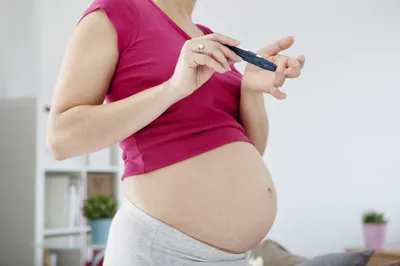
The report comes from Dr. Denice Feig and a team of Mount Sinai Hospital researchers. Feig and her team examined gestational and pre-gestational diabetes rates over a fourteen-year period, from 1996 to 2010. This involved going over the health records of 1.1 million Ontario women.
The finding, according to Feig: “By 2010, almost one in every 10 pregnant women over the age of 30 had diabetes in pregnancy…that’s enormous! And most of our women are getting pregnant over the age of 30.”
For women over the age of 40, the chance of developing gestational diabetes was even higher, at 13-percent.
What’s the cause of this surge in gestational diabetes? Feig says it’s simply a reflection of diabetes rates rising in the general population. “And the reason for that is probably increased obesity, increased fat intake in diets, poor lifestyle and decreased exercise,” Feig said.
Part of the problem may be that many women feel incredible urges to consume sugary, salty, and high-fat snacks during their pregnancies. This kind of a diet only increases the chance that a woman will develop Type 1 or Type 2 diabetes.
For newborns, the results can be devastating. Babies born to women with gestational diabetes are at a far higher risk for developing various birth defects, like a serious heart condition. Studies show that children born to women with pre-gestational diabetes have twice as likely to develop congenital anomalies.
Overall, Feig says it’s important pregnant women or women planning to become pregnant take their diets very seriously.
“A healthy lifestyle prior to and during pregnancy may decrease our gestational diabetes rates, and women should be screened for Type 2 diabetes who have a history of gestational diabetes,” Feig said.
“I think it’s a wake-up call to physicians and people who take care of women with diabetes that the rates are getting very high and these women need a lot of support.”



